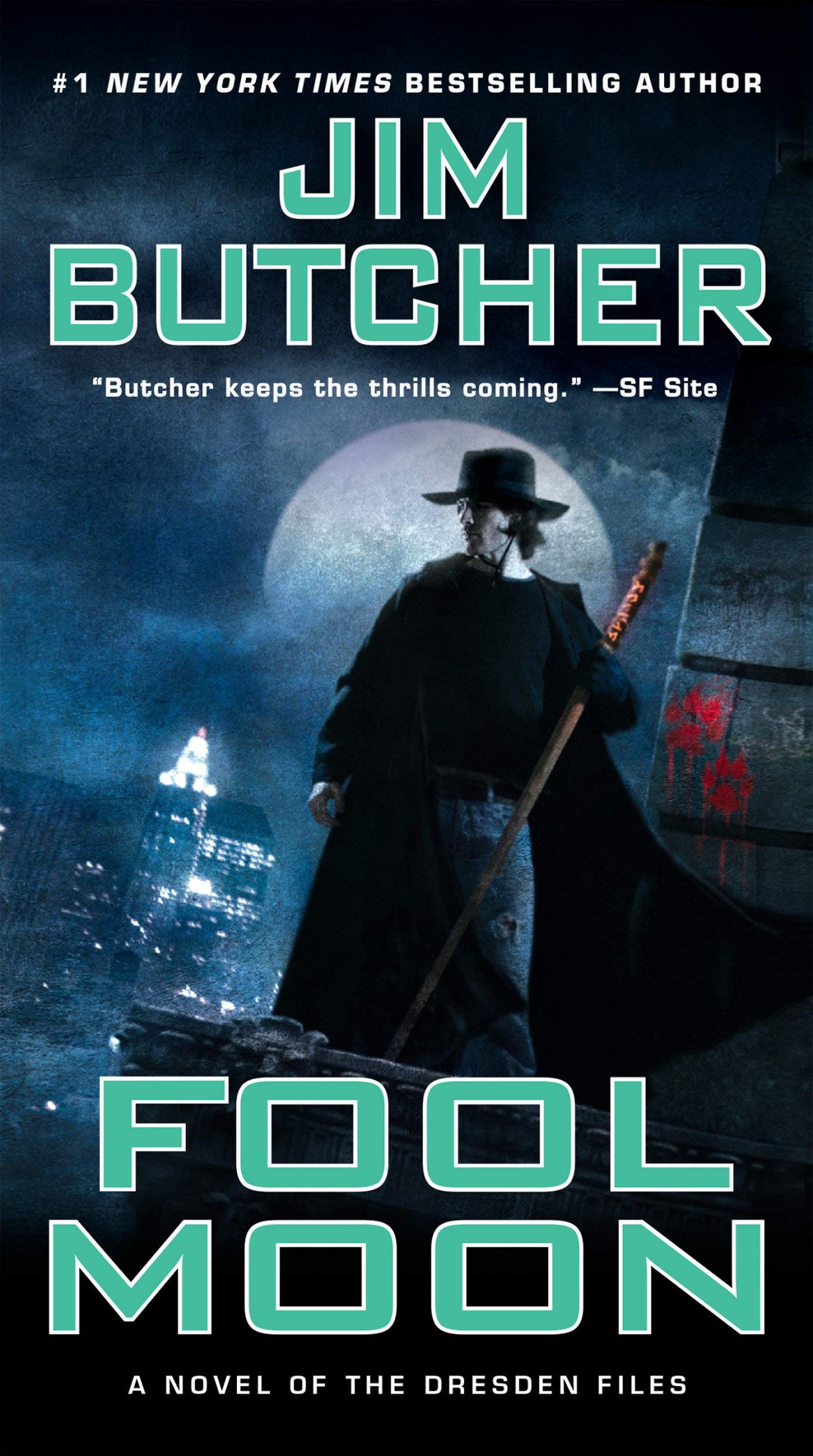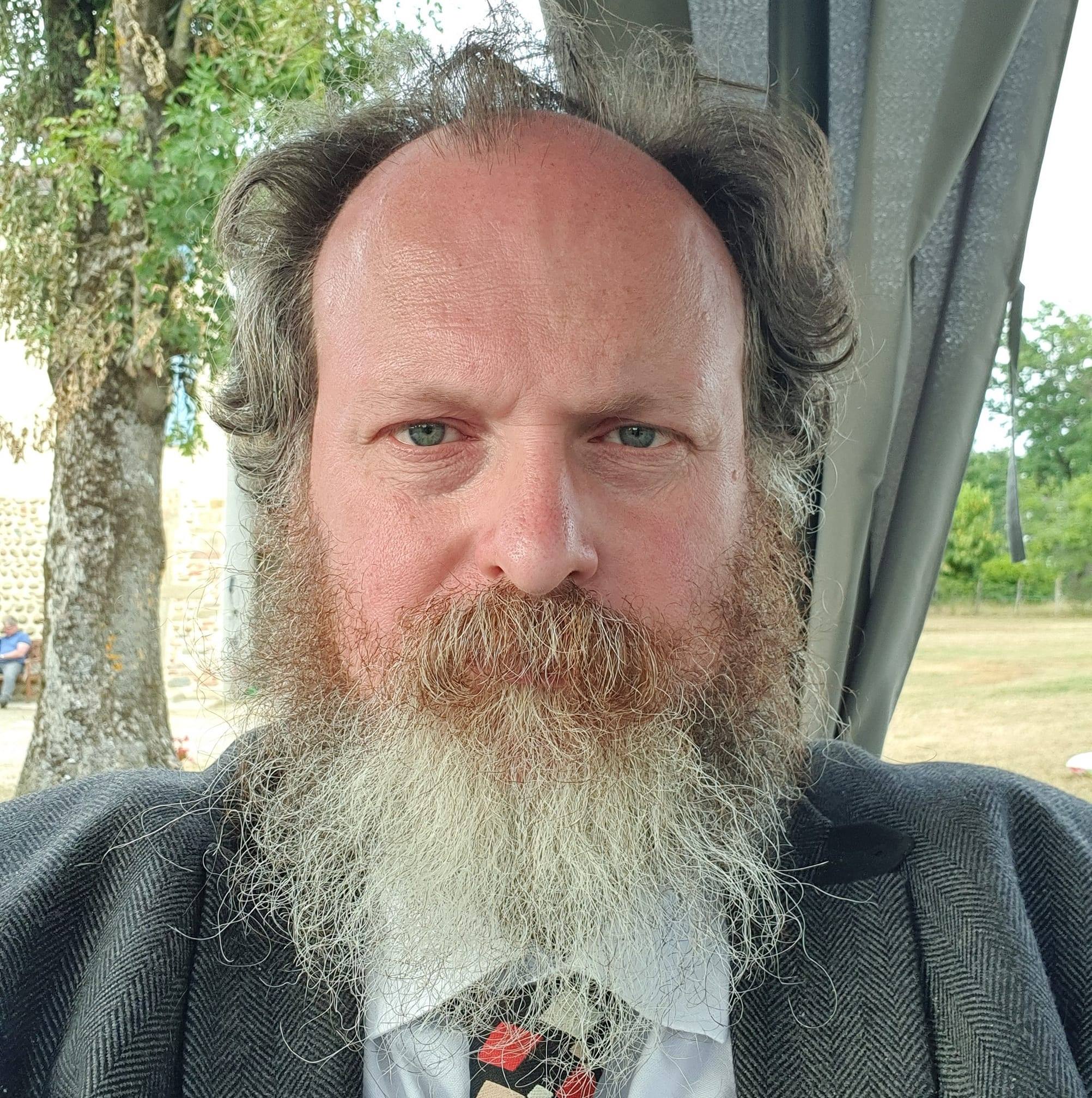
Ik blijf koppig volhouden, omdat er mij verzekerd is dat het beter wordt vanaf het derde boek. Of na het derde boek. Of tegen het zesde boek, de meningen zijn verdeeld.
Fool Moon was, voor alle duidelijkheid, opnieuw géén goed boek.
Jim Butcher en zijn vrouwenbeschrijvingen, het is wat:
She had olive skin, deep, green eyes, and a thin, severe mouth. She walked toward us with a sort of hard-muscled sensuality, moving like someone who is capable of being fast and dangerous when necessary.
Hij heeft iets met gespierde vrouwen ook:
A dark-complected woman, as tall as the long-faced blonde, but older, solid with muscle and moving with an animal surety, had come into the room from a back door.
Serieus:
And then there she was, a girl of elegant height, perhaps eighteen or nineteen years of age—gawky and coltish, all long legs and arms, but with the promise of stunning beauty to add graceful curves to the lean lines of her body. She was dressed in a pair of my blue jeans, cut off at the tops of her muscled thighs, and my own T-shirt, tied off over her abdomen. A pentacle amulet, identical to my own, if less battered, lay over her heart, between the curves of her modest breasts. Her skin was pale, almost luminous, her hair a shade of brown-gold, like ripe wheat, her eyes a startling, storm-cloud grey in contrast. Her smile lit up her face, made her eyes dance with secret fires that still, even after all the years, made me draw in a sharp breath.
Vrouwen zijn meestal feminine, wat ze ook doen. Ze lopen feminine, spreken feminine, hebben feminine handen, een feminine gezicht, yada yada. En heel soms zijn ze zowel feminine als muscular:
I took the moment to roll to my hands and knees and attempt to slip away unnoticed, but was brought up short by a pair of bare, muscular, feminine legs. My gaze followed the legs up, past the skirt, to a magnificently bare-breasted torso encircled by a wolf-pelt belt, and then to a face dominated by eyes made eerie by the lack of anything recognizably sentient in them.
Hij vlijft ook zichzelf en personage omschrijven en heromschrijven. Dit is Susan, die we nu al zeker een keer of tien omschreven hebben gekregen:
I was muttering to myself and deep in my own sleep-deprived thoughts when I bumped into a tall, lovely woman, dark of hair and eye, full of mouth, long of leg. She was wearing a tan skirt and jacket with a crisp white blouse. Her raven brows furrowed in consternation until she looked up at me, and then her eyes glowed with a sort of friendly avarice. “Harry,” she said, her lips curving into a smile. She stood up on her tiptoes and kissed my cheek. “Fancy seeing you here.”
En dit is Susan een paar pagina’s later:
She hurried over to me, and then I felt Susan’s warmth against me as she slid one of my arms over her shoulder and pressed up against my side. She was wearing jeans that showed off her long legs, and a dark red jacket that complemented her dark skin. Her hair was tied back into a ponytail, and it made her neck look slender and vulnerable. Susan felt soft and warm beyond belief, and smelled clean and delightfully feminine, and I found myself leaning against her.
Dit is hoe hij zijn houding in boek twee omschrijft:
I have what might be considered a very out-of-date and chauvinist attitude about women. I like to treat women like ladies. I like to open doors for them, pay for the meal when I’m on a date, bring flowers, draw out their seat for them—all that sort of thing. I guess I could call it an attitude of chivalry, if I thought more of myself. Whatever you called it, Murphy was a lady in distress. And since I had put her there, it only seemed right that I should get her out of trouble, too.
En dit was hoe hij zich in boek één omschreef, pro memorie:
Maybe my values are outdated, but I come from an old school of thought. I think that men ought to treat women like something other than just shorter, weaker men with breasts. Try and convict me if I’m a bad person for thinking so. I enjoy treating a woman like a lady, opening doors for her, paying for shared meals, giving flowers—all that sort of thing.
Eumja. “That sort of thing”.
Voor de rest een stereotiep verhaal over weerwolven, met verschillende soorten weerwolven dan wel — in dit boek zijn lycantropen en loups-garous en weerwolven niet gewoon andere woorden voor hetzelfde, maar specifieke dingen:
- een weerwolf is een mens die magie gebruikt om zijn vorm naar die van ene wolf te veranderen
- een hexenwolf is een mens die een deal met een magiër of een demon gemaakt heeft, een amulet of een riem of zo gekregen heeft en een wolf wordt als die zijn ding aandoet
- een lycantroop is een mens die er als een mens blijft uitzien, maar een “spirit of rage” in zijn hoofd heeft, en, zich als een beest gedraagt (en sneller geneest, beter tegen pijn kant, etc.)
- en een loup-garou is een mens die door iemand zeer machtig is vervloekt om een wolf te worden bij volle maan (en oh ja die vloek kan ook erfelijk zijn)
Tja. Netuurlijk is er minstens één van elke soort (en nog een vijfde soort, maar spoilers).
Het leest als een trein, ook en vooral omdat er zo enorm veel bladvulling staat dat diagonaal lezen echt wel meer een noodzaak dan een keuze wordt. Op naar het derde, zeker?
